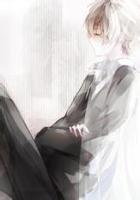As they jogged along up the beach they talked together about the only thing they could talk about--the treasure box. "And how big did you say 'twas?" quoth the good gentleman.
"About so long," said Tom Chist, measuring off upon the spade, "and about so wide, and this deep.""And what if it should be full of money, Tom?" said the reverend gentleman, swinging his cane around and around in wide circles in the excitement of the thought, as he strode along briskly.
"Suppose it should be full of money, what then?""By Moses!" said Tom Chist, hurrying to keep up with his friend, "I'd buy a ship for myself, I would, and I'd trade to Injyy and to Chiny to my own boot, I would. Suppose the chist was all full of money, sir, and suppose we should find it; would there be enough in it, d'ye suppose, to buy a ship?""To be sure there would be enough, Tom, enough and to spare, and a good big lump over.""And if I find it 'tis mine to keep, is it, and no mistake?""Why, to be sure it would be yours!" cried out the parson, in a loud voice. "To be sure it would be yours!" He knew nothing of the law, but the doubt of the question began at once to ferment in his brain, and he strode along in silence for a while. "Whose else would it be but yours if you find it?" he burst out. "Can you tell me that?""If ever I have a ship of my own," said Tom Chist, "and if ever Isail to Injy in her, I'll fetch ye back the best chist of tea, sir, that ever was fetched from Cochin Chiny."Parson Jones burst out laughing. "Thankee, Tom," he said; "and I'll thankee again when I get my chist of tea. But tell me, Tom, didst thou ever hear of the farmer girl who counted her chickens before they were hatched?"It was thus they talked as they hurried along up the beach together, and so came to a place at last where Tom stopped short and stood looking about him. "'Twas just here," he said, "I saw the boat last night. I know 'twas here, for I mind me of that bit of wreck yonder, and that there was a tall stake drove in the sand just where yon stake stands."Parson Jones put on his barnacles and went over to the stake toward which Tom pointed. As soon as he had looked at it carefully he called out: "Why, Tom, this hath been just drove down into the sand. 'Tis a brand- new stake of wood, and the pirates must have set it here themselves as a mark, just as they drove the pegs you spoke about down into the sand."Tom came over and looked at the stake. It was a stout piece of oak nearly two inches thick; it had been shaped with some care, and the top of it had been painted red. He shook the stake and tried to move it, but it had been driven or planted so deeply into the sand that he could not stir it. "Aye, sir," he said, "it must have been set here for a mark, for I'm sure 'twas not here yesterday or the day before." He stood looking about him to see if there were other signs of the pirates' presence. At some little distance there was the corner of something white sticking up out of the sand. He could see that it was a scrap of paper, and he pointed to it, calling out: "Yonder is a piece of paper, sir. I wonder if they left that behind them?"It was a miraculous chance that placed that paper there. There was only an inch of it showing, and if it had not been for Tom's sharp eyes, it would certainly have been overlooked and passed by. The next windstorm would have covered it up, and all that afterward happened never would have occurred. "Look, sir," he said, as he struck the sand from it, "it hath writing on it.""Let me see it," said Parson Jones. He adjusted the spectacles a little more firmly astride of his nose as he took the paper in his hand and began conning it. "What's all this?" he said; "a whole lot of figures and nothing else." And then he read aloud, "'Mark--S. S. W. S. by S.' What d'ye suppose that means, Tom?""I don't know, sir," said Tom. "But maybe we can understand it better if you read on.""'Tis all a great lot of figures," said Parson Jones, "without a grain of meaning in them so far as I can see, unless they be sailing directions." And then he began reading again: "'Mark--S.
S. W. by S. 40, 72, 91, 130, 151, 177, 202, 232, 256, 271'--d'ye see, it must be sailing directions-- '299, 335, 362, 386, 415, 446, 469, 491, 522, 544, 571, 598'--what a lot of them there be '626, 652, 676, 695, 724, 851, 876, 905, 940, 967. Peg. S. E.
by E. 269 foot. Peg. S. S. W. by S. 427 foot. Peg. Dig to the west of this six foot.' ""What's that about a peg?" exclaimed Tom. "What's that about a peg? And then there's something about digging, too!" It was as though a sudden light began shining into his brain. He felt himself growing quickly very excited. "Read that over again, sir," he cried. "Why, sir, you remember I told you they drove a peg into the sand. And don't they say to dig close to it? Read it over again, sir--read it over again!""Peg?" said the good gentleman. "To be sure it was about a peg.
Let's look again. Yes, here it is. 'Peg S. E. by E. 269 foot.'""Aye!" cried out Tom Chist again, in great excitement. "Don't you remember what I told you, sir, 269 foot? Sure that must be what Isaw 'em measuring with the line."
Parson Jones had now caught the flame of excitement that was blazing up so strongly in Tom's breast. He felt as though some wonderful thing was about to happen to them. "To be sure, to be sure!" he called out, in a great big voice. "And then they measured out 427 foot south-southwest by south, and they then drove another peg, and then they buried the box six foot to the west of it. Why, Tom--why, Tom Chist! if we've read this aright, thy fortune is made."Tom Chist stood staring straight at the old gentleman's excited face, and seeing nothing but it in all the bright infinity of sunshine. Were they, indeed, about to find the treasure chest? He felt the sun very hot upon his shoulders, and he heard the harsh, insistent jarring of a tern that hovered and circled with forked tail and sharp white wings in the sunlight just above their heads; but all the time he stood staring into the good old gentleman's face.















